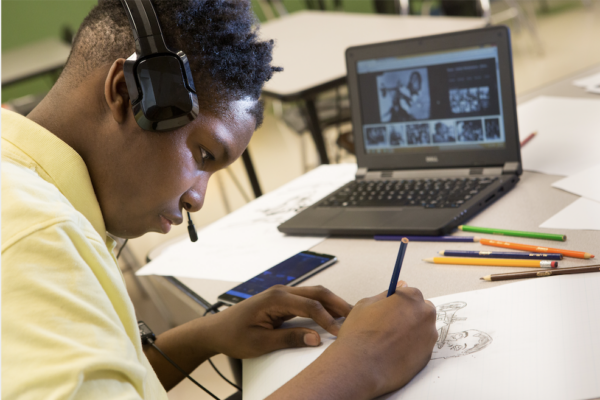This appeared as a commentary piece in The Hill.
Not surprisingly, the nation’s 13,300 school districts have struggled to shift instruction for 50 million students from classrooms to bedrooms, dinner tables and homeless shelters. Many students aren’t learning much.
In Los Angeles, a third of high school students weren’t logging onto the city’s online learning platform in April. Affluent Fairfax County spent a month readying a platform, only to shut it down twice amid a tsunami of problems.
The nonprofit testing company NWEA predicts that between the closing of schools in mid-March and their reopening in the fall, the average student is going to lose roughly half of what they were expected to learn in math during the 2019-2020 school year and close to a third of what they would have learned in reading.
To catch students up, schools will need to get a handle on exactly how far students have fallen behind, and that means testing.
Education Secretary Betsy DeVos rightly waived this spring’s federally mandated statewide standardized testing, the first nationwide break in state testing in half a century. In response, some accountability advocates are calling on states to administer the 2020 tests this fall. That’s a bad idea.
Weeks-long batteries of standardized tests used primarily to rate schools aren’t the way to welcome students — and teachers — back from difficult quarantine experiences. Moreover, state tests take too long to score to give schools the information they need.
Instead, when schools reopen educators should turn to diagnostic measures of reading and math proficiency to help teachers identify individual students’ needs and gauge where to pick up instruction. These early-year assessments would be best kept short (30 minutes), connected closely to schools’ curriculum and eased into the school day one subject at a time.
This kind of testing will be particularly valuable in targeting support for low-income students, whose lack of wifi access and other distance-learning supports are likely to expand already wide achievement gaps.
In the spring, states should restart their annual assessments mandated by the federal Every Student Succeeds Act — but not count the results for schools or teachers. There’s a big political risk in restarting school accountability too quickly. Opponents of standardized testing — led by accountability-averse teachers’ unions and their progressive allies on the left, and conservatives opposed to what they consider an inappropriate federal role in testing on the right — have been waging a half-decade-long campaign to roll back state testing systems.
A recent FutureEd analysis found that lawmakers in 26 states introduced legislation to reduce standardized testing between 2014 and 2019 in response to the pressure campaign, and many state boards of education and state education agencies cut testing.
[Read More: The Big Test: The Future of Statewide Standardized Assessments]
Testing critics are eyeing the coronavirus crisis as an opportunity to leverage more cuts — including, eventually, the elimination of the federal testing mandate. “Onward to cancelling MCAS PERMANENTLY,” the president of the Massachusetts Teachers Association wrote recently on Facebook after the suspension of the Massachusetts testing regime.
Policymakers should resist these pressures. Just as widespread coronavirus testing will guide our return to normal life, state testing systems have a valuable role to play in helping leaders map education strategy, track progress and back the nation’s neediest students. But attaching stakes to test results too quickly would play into the hands of accountability opponents at a time when we need smart testing more than ever.
Thomas Toch is the director of FutureEd.

